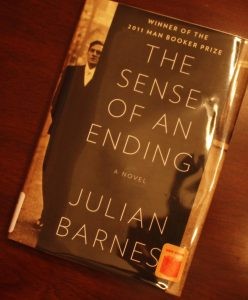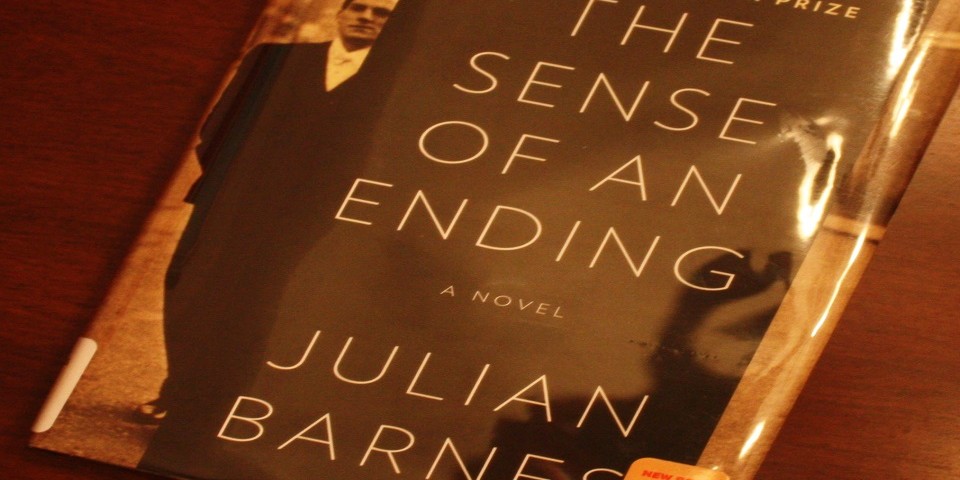
साहिर लुधियानवी का एक दुर्लभ इंटरव्यू
September 8, 2016
Why Fantasy
December 12, 2016Some stories leave behind a desiccating vacuum hanging on the palate and brooding lump in the throat, as the mind meditatively compares your own life experiences with the story. “The Sense of an Ending”, the novella which won Julian Barnes the prestigious Man Booker Award for the year 2011 is one such chef-d’œuvre.

Julian Barnes
The protagonist, Tony Webster, upon his retirement, opens the story with reminiscences of his school days. We journey as Tony strings us along the winding, and often very dimly lit lanes of his memory. He goes on to discuss his mediocre existence that spans a few failed relationships, a career, a marriage, a daughter, a divorce, a grandkid and oodles of life wearing ordinariness. As a school going adolescent, he revels in belonging to a “book hungry, sex hungry, meritocratic, anarchistic” quartet to which “all political and social systems appeared corrupt”, yet declined to “consider an alternative other than hedonistic chaos”.

The Sense of an Ending – Julian Barnes
One of his philosophy-philic friend, Adrian Finn, seems to have a profound influence on his life- intellectually and personally. Not that Adrian inspired him into doing something great or glorious; but weirdly enough, he is a kind of reference station to view, review and reflect on life. It is through these reflections that a volley of thought twisting questions is thrown at the reader. For instance, this stimulating class discussion on ethos of History- is it a “way of exonerating individuals”; or “lies of the victors”; or “same old oscillation between tyranny and rebellion, war and peace, prosperity and impoverishment” or “that certainty produced at the point where imperfections of memory meet the inadequacies of documentation”?
Now look at it on a micro scale: one’s personal history ie. what one ends up remembering isn’t always the same as what one has witnessed. Also, the same memory retrieved and reconstructed at one mental state may not necessarily be the same when one recollects and rebuilds it at another mental state useful content. This lapse becomes evident when Tony suddenly receives a letter from a lawyer and circumstances force him to reconnect with his estranged love of yore, Veronica. What follows is a tale of mystery and intrigue wherein the past reassembled from rubble of memories clashes against the rock of present reality.
The novella is a work of prodigious craft and talent. Barnes is a sharp yet sensitive wordsmith who embroiders intricate patterns friendship, love, guilt, remorse, nostalgia and philosophical anguish on a taut tapestry of mere 150 pages- skillfully layering it with literary langour and page-turning action. Tony perhaps wished to seek a peaceful closure on some fronts in his life but all he ends up with is a tempestuous unrest. What the reader gets in return is a thought jangling, soul shaking, immensely re-readable masterpiece!
![]()


